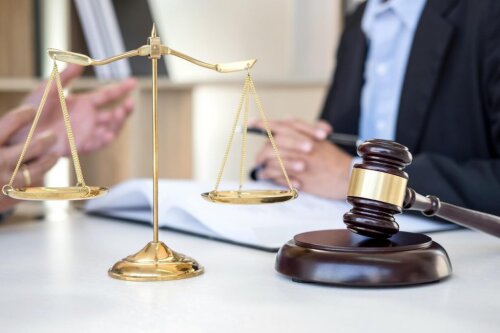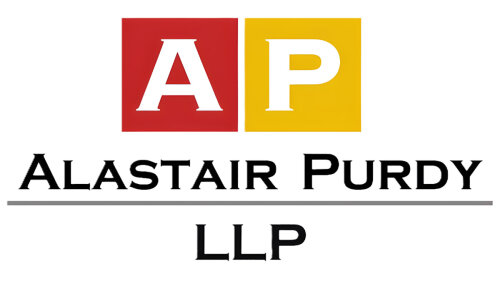Best Real Estate Due Diligence Lawyers in Galway
Share your needs with us, get contacted by law firms.
Free. Takes 2 min.
Free Guide to Hiring a Real Estate Lawyer
List of the best lawyers in Galway, Ireland
About Real Estate Due Diligence Law in Galway, Ireland
Real Estate Due Diligence in Galway, Ireland, is a critical aspect of the property acquisition process. It involves a comprehensive examination of the property's legal, financial, and physical conditions. This process helps potential buyers to make informed decisions by identifying any risks, liabilities, or issues associated with the property. It typically includes reviews of legal documents, physical inspections, title checks, and environmental assessments to ensure that the property complies with local regulations and is a sound investment.
Why You May Need a Lawyer
There are several situations where you might require legal assistance during the Real Estate Due Diligence process in Galway:
- Complex Transactions: Large or complicated property deals often involve intricate legal agreements and statutory compliance that require expert interpretation.
- Legal Compliance: Ensuring that the property adheres to local zoning laws, planning permissions, and building codes can be challenging without legal expertise.
- Title Issues: Discrepancies or disputes related to property titles, such as easements or liens, may require legal resolution.
- Contract Negotiations: Lawyers ensure that contracts accurately reflect the intentions of the parties and offer protection through appropriate clauses.
- Risk Mitigation: Identifying potential risks, such as environmental liabilities, and advising on mitigation strategies is crucial to protecting your investment.
Local Laws Overview
In Galway, several key aspects of local real estate law are particularly relevant to due diligence:
- Conveyancing Code: This governs the legal transfer of property ownership and outlines requisite procedures, ensuring proper documentation and registration.
- Planning and Development Acts: These laws regulate all development-related activities. They are essential for realizing the potential uses and restrictions on a property.
- Land Registry and Registry of Deeds: These are the principal records for property titles in Ireland. Ensuring that your property is correctly registered is crucial.
- Environmental Regulations: Ireland has specific standards to protect natural heritage and environment, requiring due diligence on potential contamination or conservation obligations.
Frequently Asked Questions
What is the purpose of real estate due diligence?
The purpose of due diligence is to gather all necessary information to assess the value and suitability of a property, identify any risks or liabilities, and ensure compliance with local laws and regulations.
What documents are typically reviewed during due diligence?
Documents such as title deeds, zoning reports, environmental assessments, surveys, and any existing contracts or leases are typically reviewed during due diligence.
How long does the due diligence process take?
The duration can vary depending on the complexity of the transaction, but it generally takes several weeks to a few months to complete.
What should I do if I discover a problem during due diligence?
If issues are discovered, it is advisable to consult a lawyer immediately to assess the severity of the problem and explore potential remedies or negotiations.
Do I need to conduct physical inspections?
Yes, physical inspections are a vital component of due diligence to ensure the property's condition is as expected and to identify any necessary repairs or maintenance.
Are there taxes or fees associated with property acquisition?
Yes, there are various taxes and fees, such as Stamp Duty and registration fees, that may apply to property transactions in Galway.
How do I verify the property's legal title?
Verification of the property's legal title involves conducting a title search through the Land Registry or Registry of Deeds to confirm ownership and check for encumbrances.
Can I negotiate the terms of a property contract?
Yes, the terms of a property contract can often be negotiated, and it is advisable to have a lawyer review and assist in these negotiations to protect your interests.
What if I want to use the property for a different purpose?
You will need to confirm that the new use complies with zoning regulations and obtain any necessary planning permissions or variances from local authorities.
What if I'm buying property as a foreign investor?
Foreign investors should seek legal advice regarding specific rules and restrictions that may apply, such as tax implications and ownership rights.
Additional Resources
Several resources can assist those seeking information and guidance on real estate due diligence in Galway:
- Galway City Council - Planning Department for zoning and planning details.
- The Property Registration Authority of Ireland for title searches and land registry information.
- Environmental Protection Agency for guidelines on environmental compliance.
- The Law Society of Ireland for information on legal professionals specializing in property law.
Next Steps
If you need legal assistance with Real Estate Due Diligence in Galway, consider the following steps:
- Identify a solicitor specializing in property law to ensure you have the right expertise for your needs.
- Gather all available property documents and information to share with your solicitor.
- Arrange a consultation to discuss your specific situation and any concerns you might have.
- Work with your solicitor to develop a comprehensive due diligence plan tailored to your transaction.
Lawzana helps you find the best lawyers and law firms in Galway through a curated and pre-screened list of qualified legal professionals. Our platform offers rankings and detailed profiles of attorneys and law firms, allowing you to compare based on practice areas, including Real Estate Due Diligence, experience, and client feedback.
Each profile includes a description of the firm's areas of practice, client reviews, team members and partners, year of establishment, spoken languages, office locations, contact information, social media presence, and any published articles or resources. Most firms on our platform speak English and are experienced in both local and international legal matters.
Get a quote from top-rated law firms in Galway, Ireland — quickly, securely, and without unnecessary hassle.
Disclaimer:
The information provided on this page is for general informational purposes only and does not constitute legal advice. While we strive to ensure the accuracy and relevance of the content, legal information may change over time, and interpretations of the law can vary. You should always consult with a qualified legal professional for advice specific to your situation.
We disclaim all liability for actions taken or not taken based on the content of this page. If you believe any information is incorrect or outdated, please contact us, and we will review and update it where appropriate.
















